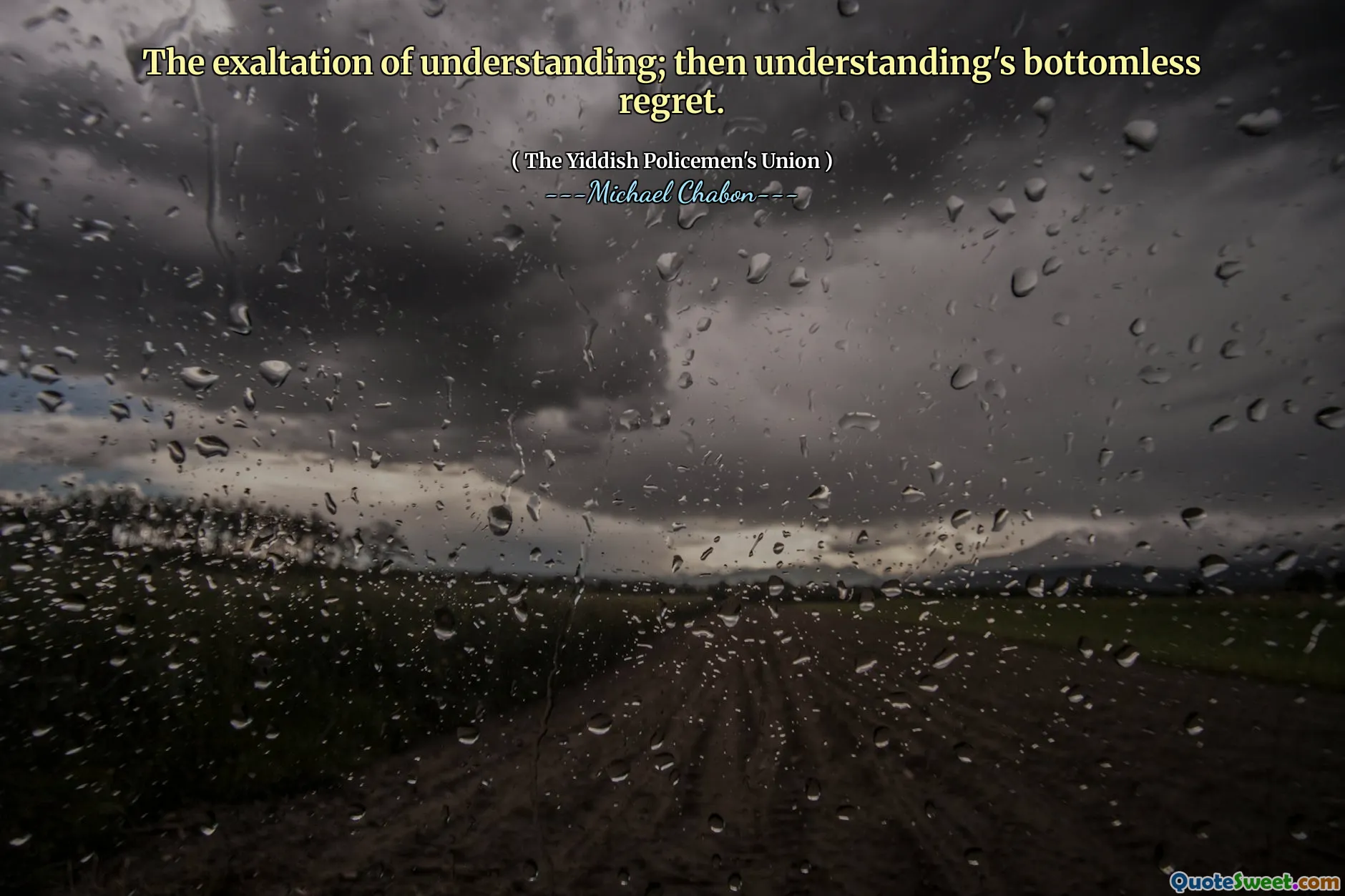
The exaltation of understanding; then understanding's bottomless regret.
This quote delves into the paradoxical nature of human understanding and knowledge. The phrase 'The exaltation of understanding' suggests a elevation, almost a celebration, of human intellect and comprehension. It indicates a peak of intellectual achievement, where one might feel triumphant or enlightened through grasping complex truths. However, the curator of this sentiment introduces a contrasting notion—'then understanding's bottomless regret.' This regret implies a profound sorrow or remorse that follows this exaltation, hinting that increased understanding may also unveil uncomfortable truths, reveal failures, or lead to existential despair.
In the context of the novel '(The Yiddish Policemen's Union)' by Michael Chabon, this perspective resonates deeply. The characters often grapple with layered identities, moral ambiguities, and the bittersweet realization that acquiring knowledge can sometimes complicate their lives rather than simplifying them. The pursuit of understanding can shed light on the darker corners of both the universe and the human soul, leading to feelings of regret that are 'bottomless.'
Emotionally and philosophically, this quote captures the essence of intellectual humility and acknowledgment of the potential pain that knowledge can bring. It acts as a reminder that enlightenment is not always purely uplifting; it can also be haunted by echoes of regret, loss, and the acknowledgment of life's inherent ambiguities. Such reflection invites us to accept a more nuanced view of wisdom—that perhaps with understanding comes a burden, a realization of limitations and the inevitable imperfections in human existence.
Overall, the quote underscores the double-edged sword of insight: while it can elevate us, it can also deepen our sorrow. This complexity makes it a profoundly insightful observation relevant across various aspects of life—personal, philosophical, and societal.






